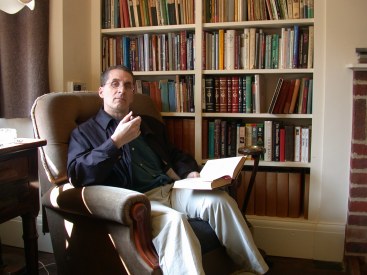 There’s an infamous saying that almost brought down the American economy. “Too big to fail.” (I already wrote about this in my other blog here, but this post takes the idea in a different direction.) My own take on that absurd concept is, if something’s too big to fail, it’s too big. Period. Note that the statement is actually a lie. Nothing is too big to fail. Failing happens regardless of size. Just ask the Empire.
There’s an infamous saying that almost brought down the American economy. “Too big to fail.” (I already wrote about this in my other blog here, but this post takes the idea in a different direction.) My own take on that absurd concept is, if something’s too big to fail, it’s too big. Period. Note that the statement is actually a lie. Nothing is too big to fail. Failing happens regardless of size. Just ask the Empire.
My own preference is for small: small cars, small churches, small stores, small restaurants, small businesses in general. I’ve worked for big companies – I’m talking BIG companies – and small companies. There’s no comparison. For the most part, the big ones are hell, the small, paradise.
My preference for the petite extends to movies and movie theaters. Yes, there’s a place for the blockbuster playing at the regional Imax theater, but it’s a small place. (That shouldn’t surprise you.) This was brought home to me in the most tangible way possible this past week. I saw BIG movie in a BIG movie house. A few days later I saw a small movie in a cozy little theater. The former was torture, the latter a joy.
 At the risk of life and limb*, I’ll tell you about the BIG movie. “Interstellar” was BIG in stars, budget, marketing, and most painfully, length. It felt more like a three hour physics lecture than a story. (You remember “story”, don’t you?)Yes, of course the special effects were amazing. Let’s agree that effects are always amazing and be done with it. They no longer have any meaningful impact on the quality of a movie, any more than the fact that it’s in “full living color!”
At the risk of life and limb*, I’ll tell you about the BIG movie. “Interstellar” was BIG in stars, budget, marketing, and most painfully, length. It felt more like a three hour physics lecture than a story. (You remember “story”, don’t you?)Yes, of course the special effects were amazing. Let’s agree that effects are always amazing and be done with it. They no longer have any meaningful impact on the quality of a movie, any more than the fact that it’s in “full living color!”
For my money, the more important contributors to movie quality consist of things like the following: Consistent characters, cohesive story, and humility of length, all in short supply in Interstellar.
When the credits finally, mercifully rolled, I realized I’d forgotten it had been directed by Christoper Nolan, a man who specializes in BIG, at least since “Dark Knight”. So I hated the BIG movie, with its physics borrowed from Madeline L’Engle, interviews stolen from Ken Burns, and everything else taken from Stanley Kubrick.
And the venue? There’s nothing to like about Generic Cinema 1-2-3-4-5-6-7-8-9-10-11-12-13-14-∞.
 Forget BIG. Let me tell you about the small venue. It’s called “Luna” and it’s found in a remodeled mill building, nestled in with a bunch of funky little (do you see a theme emerging?) shops. The audience sits in easy chairs with tables nearby on which to put snacks and drinks. None of the seats are half a mile from the screen from which the movie is just a rumor. Even the tickets at Luna are cooler than the the ones at Generic Cinema 1-2-3-4-5-∞. See what I mean? →
Forget BIG. Let me tell you about the small venue. It’s called “Luna” and it’s found in a remodeled mill building, nestled in with a bunch of funky little (do you see a theme emerging?) shops. The audience sits in easy chairs with tables nearby on which to put snacks and drinks. None of the seats are half a mile from the screen from which the movie is just a rumor. Even the tickets at Luna are cooler than the the ones at Generic Cinema 1-2-3-4-5-∞. See what I mean? →
Which looks like a more enjoyable way to see a movie?
The movie I saw at Luna was small. It was about people, not aliens – ideas, not bombs – real places, not CGI landscapes. Most movies happen to you. I like a movie I can settle into. There’s a place for both in the world, but not in Generic Cinema 1-2-3-4-5-∞.
I don’t think there’s a place for me there either.
* Publicly criticizing a Christopher Nolan movie, I’ve come to find out, can be hazardous to your health. When I made disparaging comments about “Inception” in this post, I was taken to task with a profanity-laced harangue from someone who must have a degree in Missing the Point. I expect to hear from the same guy this time, with his master’s thesis in Cluelessness.










